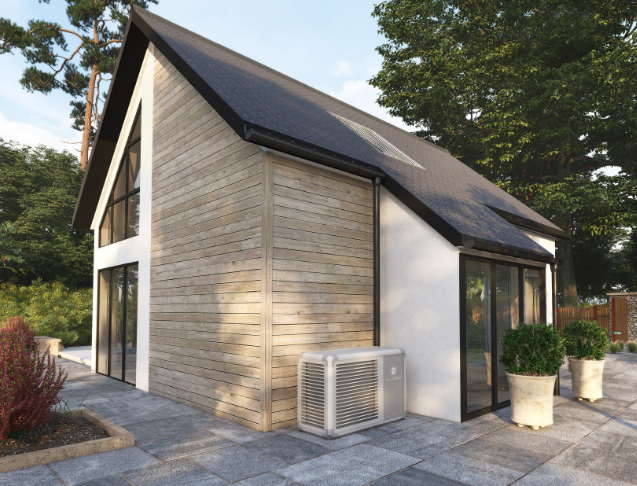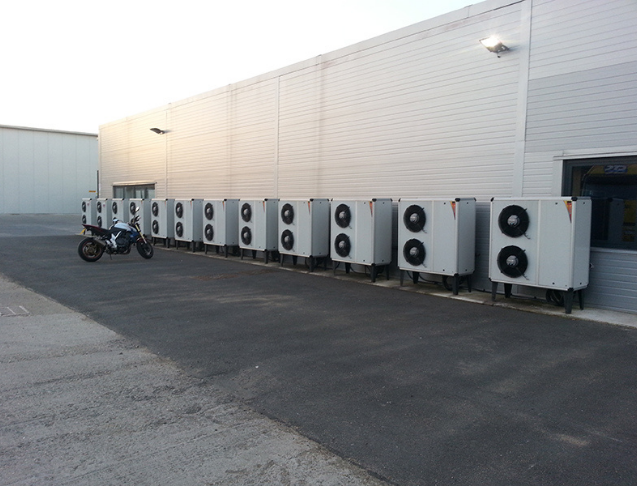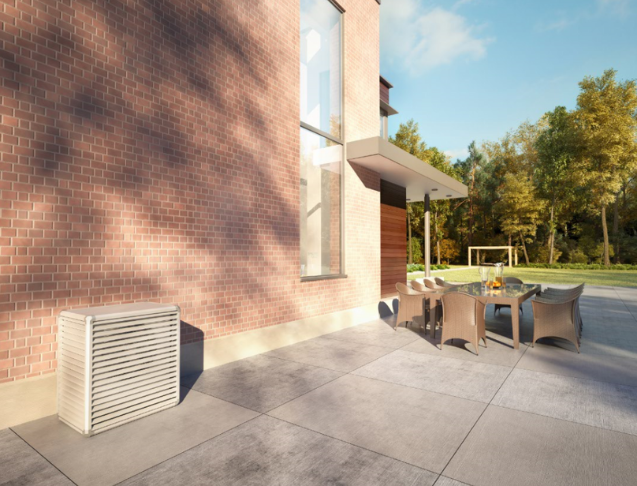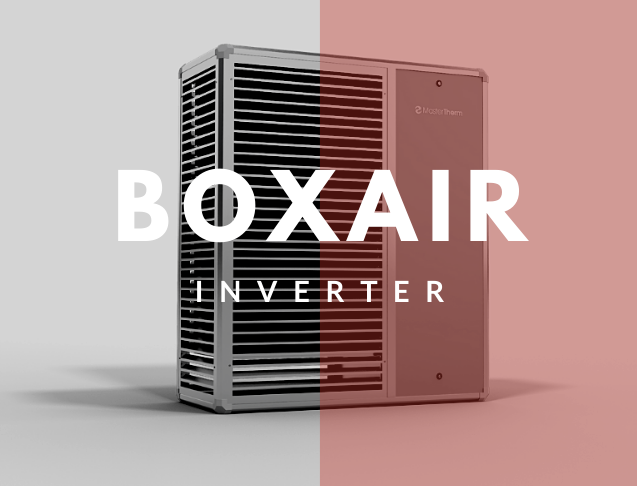What is an air source heat pump?
Air source heat pumps are units which are installed externally to buildings. They extract heat energy from the outside air and move it into a building to provide hot water, space heating and cooling. Powered by electricity they are clean, combustion-free and capable of providing year-round comfort even in temperatures as low as -20°C. Air source heat pumps are extremely efficient and can produce 3kWh of usable heat energy for every 1kW of electricity used which is an efficiency of 300%.


How does an air source heat pump work?
Air source heat pumps contain fans which draw in air from the outside environment, a fluid inside the heat pump absorbs the thermal energy from the air. The fluid is passed through a compressor which raises the temperature to usable level and then circulated through a heat exchanger which will distribute the heat to your hot water tank, radiators or underfloor heating.
The Benefits of an Air Source Heat Pump
- A more efficient an environmentally-friendly heating system
- Reduces your monthly energy bill
- Clean and combustion free
- Specially insulated for quiet operation
- Ideal for properties which have limited indoor space (and limited outdoor space for laying groundworks for a ground source heat pump)
- Suitable for buildings of all sizes from residential to commercial
- Works with a variety of heat distribution systems including underfloor heating, radiators and fan coil units
- Requires minimal maintenance and has a long lifespan of around 20 years
- No need for fuel cards or fuel deliveries
- Receive government financial benefits such as the Renewable Heat Incentive


Our BoxAir Inverter Air Source Heat Pump
With its robust design and outstanding efficiencies, our BoxAir Inverter is quietly brilliant thanks to its low noise DC fan and sound insulation. Equipped with weather compensation, solar thermal integration and the ability to offer simultaneous heating and cooling, it's a small yet mighty heat pump, designed to offer year-round comfort and state of the art performance levels.
FAQs About Air Source Heat Pumps















